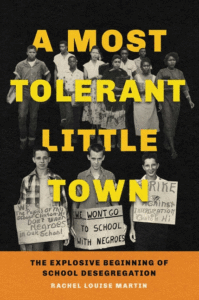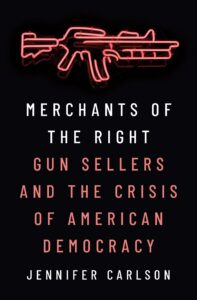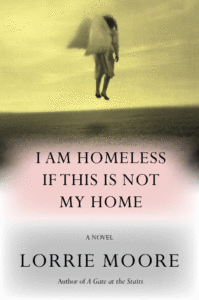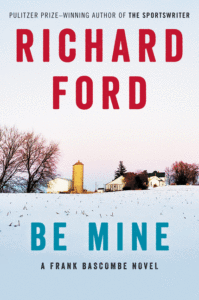
5 Book Reviews You Need to Read This Week
"An almost violent kind of achievement: a writer knifing forward, slicing open a new terrain"
This week’s basket of brilliant reviews includes Parul Sehgal on Loorie Moore’s I Am Homeless If This Is Not My Home, Sam Sacks on Richard Ford’s Be Mine, Samuel G. Freedman on Rachel Louise Martin’s A Most Tolerant Little Town, Alex Beggs on Deborah Willis’ Girlfriend on Mars, and Jack McCordick on Jennifer Carlson’s Merchants of the Right.
Brought to you by Book Marks, Lit Hub’s “Rotten Tomatoes for books.”
*
“What verdict awaits the diaphanous ghost story that is I Am Homeless if This Is Not My Home, with its curious, unravelling structure? Too odd, I suspect … The voice that greets us is a shock … Slapstick inevitably ensues, but most of the telling unfurls in a language of ravishment and wonder … Just like Lily, the novel itself begins to come apart. As the pages turn, the story does not build or cohere. It degrades. Subplots and subsidiary characters fall away …
One might say of Lorrie Moore what she said of Updike—that she is our greatest writer without a great novel—but how tinny ‘greatness’ can feel when caught in the inhabiting, staining, possessing power of a work of such determined strangeness and pain. An almost violent kind of achievement: a writer knifing forward, slicing open a new terrain—slicing open conventional notions and obligations of narrative itself … For all her preoccupation with language, Moore’s deeper interest has always been with structure, or, rather, with its limitations; you sense her impatience to break it open, to take inspiration for the shape of a story from music or sculpture … Moore’s ‘radiant turbulence’ will always beckon. You have to stick around for the show.”
–Parul Sehgal on Loorie Moore’s I Am Homeless If This Is Not My Home (The New Yorker)
“When the late, lamented Martin Amis titled a nonfiction collection The War Against Cliché he was invoking the writer’s fiercely waged campaign against triteness and received wisdom, in which wit and virtuosity are wielded like weapons to hack down commonplaces and explode assumptions. But opposed to this militant conception of art is what we might think of as the missionary approach. This involves moving into the ordinary world, adopting its habits and perspectives and trying, as a trusted insider, to reveal the beauty and grace that dwell in its seeming banality … Mr. Ford’s tendency to write in chin-stroking proverbs has brought him critics…but what’s important is less the truth of these utterances than the extent to which Frank relies on them. In Mr. Ford’s hands, clichés become koans, simultaneously resonant and hollow depending on one’s fortunes at the time, and to Frank they double as sound, practical counsel and bitter jokes …
Mr. Ford has written these books in the first-person present tense. The immediacy of the narration not only communicates Frank’s moment-to-moment bewilderment, it leaves him unvarnished and exposed, deprived of the luxury of sanitizing impressions that might make him look bad … But these weaknesses, however exasperating, are vital because they help to make Frank a convincing and three-dimensional everyman … A wonderful voice … The Bascombe books are unquestionably faithful to randomness, to the great human accident of existence. They are also works of tremendous craft and arrangement, full of tantalizing patterns and recurrences. In this balance of meaning and meaninglessness there has always been enough mystery to keep Frank occupied for a lifetime.”
–Sam Sacks on Richard Ford’s Be Mine (The Wall Street Journal)

“Martin’s book provided the disturbing, destabilizing experience of being thrust back into a period of intense racial hatred as if it were happening in real time. It is one thing to recall famous photographs of police dogs set loose on child marchers during the civil rights movement, or of lynch mobs picnicking around a still-hanging corpse. It is another to be confronted with a meticulous, day-by-day reconstruction of relentless bigotry in action. Nearly every page of Martin’s book brings to life the atrocities inflicted upon Black children and parents, and a handful of white allies, in the town of Clinton, Tenn., during the year after its high school desegregated under a federal court order …
Martin deserves particular credit for excavating a piece of school-desegregation history that, despite having been covered by national news outlets at the time, has since been overlooked in favor of better-known battles like those in Little Rock and Boston … given the constant threat of racism to our democracy, including worsening school segregation in districts across the country and the bans in certain states on books about systemic inequality, who is to say that Martin is wrong to leave her readers so overwhelmed by despair?”
–Samuel G. Freedman on Rachel Louise Martin’s A Most Tolerant Little Town: The Explosive Beginning of School Desegregation (The New York Times Book Review)

“Sometimes, a girlfriend needs space. Sometimes, she goes to space. That’s the—OK, obvious—premise of Girlfriend on Mars, a novel by the Canadian writer Deborah Willis, who knows what we’ve wished for from books all along, which is that they were TV instead. Just kidding! But Willis does know how to tell a story with the grip of a good drama series … While the setup could have made for a breezy read, Willis cuts deep with insight that orbits the age-old, just-took-a-bong-hit question: What does it mean to be real? And what better setting from which to examine that idea than reality TV? Like Blair Braverman’s wilderness-survival-show novel Small Game…Girlfriend on Mars depicts the production and fanfare of a reality show as pure baloney but many cast members’ motivations as almost painfully pure. Some of those Bachelor contestants do really seem to long for love. Here, Amber genuinely wants to ‘show God—that irritable, judgy, unhelpful bastard—who’s boss’ and ‘create Eden’ on dusty ol’ Mars. I couldn’t change the channel. Even the word ‘real’ is used 87 times in the book…
Kevin worships a farmer who delivers him a box of produce every week, because he has ‘a real wife, a real family, a real job’—and, it turns out, some very real problems, too. When Kevin is thinking of getting back into screenwriting, he finds inspiration in the theme ‘Reality. Its unbearableness.’ Task, the ‘Billionaire Douchebag,’ promises this will be ‘the most real reality TV we’ve ever seen.’ But it’s our reality that Willis is playing with, and she has fun with it, especially our life on the internet, another unreal place we’ve come to accept as all too real … Every detail is sharply placed by Willis, who has a scorching sense of humor and a soft spot for humanity down here on Earth.”
–Alex Beggs on Deborah Willis’ Girlfriend on Mars (The New York Times Book Review)

“The Covid buying spree arrived at the tail end of a half-century development in American politics: the steady movement of guns to the red-hot core of the political right. By the end of Obama’s second presidential term, gun possession was a more reliable voting indicator than race, class, gender, and age, and support for gun rights better predicted party affiliation than views on any other single issue … Studies of American gun culture have often focused on the top-down influence of large organizations, such as gun manufacturers or the National Rifle Association. But these accounts only tell one part of the story. Sociologist Jennifer Carlson argues that we would learn just as much by examining how gun enthusiasts have constructed a political style from the ground up … The book-length product of these interviews, Merchants of the Right, treats gun sellers as ‘merchants not just of guns but also of gun culture.’
The stores they preside over serve as spaces like ‘nineteenth-century coffeehouses and salons,’ where political conversation and conversion abound… In a year of Black Lives Matter, Covid, and the 2020 election, gun sellers furthered a culture of armored individualism, unhinged conspiracism, and extreme partisanship. The gun-buying surge of 2020, in Carlson’s sobering portrait, is both a culmination of these tendencies and harbinger of a perilous, illiberal future … For the people Carlson interviewed, conspiracy theories about Black Lives Matter protests, the pandemic, and the 2020 election served a clear purpose. By offering all-encompassing, unfalsifiable explanations for major events and dividing the world neatly into friends and enemies, conspiracies allowed gun sellers to avoid grappling with the converging crises of 2020 as members of a small-d democratic public.
In a sense, Carlson writes, gun sellers ‘use’ conspiracism in much the same way they ‘use’ their firearms: Convinced that their guns, and their guns alone, would give them protection, they were able to ‘circumvent the urgent questions of collective action and of democratic deliberation’ generated by the protests and pandemic … As much as Carlson’s book is a work of sociological analysis, it is also a warning. From her vantage, contemporary gun politics are a ‘canary in the coal mine of American democracy.’ While some of the gun sellers she interviewed did maintain a commitment to civic debate and engagement across political lines, many saw mutual, existential fear as a defining condition of political life.”
–Jack McCordick on Jennifer Carlson’s Merchants of the Right: Gun Sellers and the Crisis of American Democracy (The New Republic)
Book Marks
Visit Book Marks, Lit Hub's home for book reviews, at https://bookmarks.reviews/ or on social media at @bookmarksreads.






















